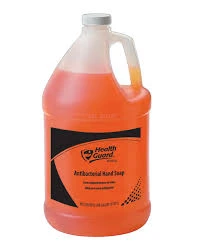isothiazolinone uses
The Uses of Isothiazolinones A Comprehensive Overview
Isothiazolinones are a class of chemical compounds widely recognized for their effectiveness as biocides and preservatives. These compounds, which include well-known types such as methylisothiazolinone (MIT) and chloromethylisothiazolinone (CMIT), have gained significant traction across various industries due to their ability to inhibit the growth of bacteria, fungi, and algae. This article explores the diverse uses of isothiazolinones, highlighting their importance in different applications, benefits, and safety considerations.
1. Biocidal Applications
One of the primary uses of isothiazolinones is in the field of biocides. Their potent antimicrobial properties make them invaluable in the prevention of microbial deterioration in various materials and products. Isothiazolinones are commonly used in
- Water Treatment These compounds are effective in treating cooling water systems, industrial water systems, and swimming pools. Their ability to control microbial growth helps maintain water cleanliness and prevents harmful biofilm formation.
- Paints and Coatings Isothiazolinones are often added to paints and coatings to protect them from fungal and bacterial growth. This ensures a longer shelf life and maintains the aesthetic appeal of painted surfaces.
- Adhesives and Sealants The incorporation of isothiazolinones in these materials helps to prevent microbial spoilage during storage and application, enhancing their durability.
2. Personal Care Products
Isothiazolinones are extensively used in the cosmetic and personal care industry. They serve as preservatives in products such as shampoos, conditioners, lotions, and creams. By preventing the growth of harmful microorganisms, these compounds contribute to the safety and longevity of personal care items.
However, the use of isothiazolinones in cosmetics has come under scrutiny due to potential allergic reactions, particularly in individuals with sensitive skin. Some regulatory bodies have imposed restrictions on their concentration levels in cosmetic formulations to mitigate these risks.
3. Household Products
Cleaning agents and disinfectants frequently contain isothiazolinones due to their potent antibacterial and antifungal properties
. They are found inisothiazolinone uses

- Surface Cleaners To maintain hygiene and cleanliness, isothiazolinones are included in various surface cleaners, ensuring that harmful microbes are eradicated.
- Laundry Products Some laundry detergents utilize isothiazolinones to prevent microbial growth in wet fabrics, thereby enhancing freshness and cleanliness.
- Dishwashing Chemicals Their effective antimicrobial properties help ensure that dishes, utensils, and surfaces are free from harmful pathogens.
4. Industrial Applications
In the industrial sector, isothiazolinones play a crucial role in preserving materials and ensuring the reliability of products. They are used in
- Metalworking Fluids The addition of isothiazolinones in metalworking fluids prevents bacterial growth, which can compromise the quality of the machining process and the finished product.
- Pulp and Paper Industry Isothiazolinones are employed in this industry to protect against microbial growth, enhancing the production process and product quality.
- Textile Applications In textiles, these compounds help prevent mold and mildew formation, ensuring that fabrics maintain their integrity during storage and use.
5. Agricultural Use
In agriculture, isothiazolinones have found applications as biocides, providing effective control against various pests and diseases. Their use helps protect crops, enhancing yield and quality. However, their application in agriculture is strictly regulated to ensure environmental safety and minimize risks to non-target organisms.
Conclusion
Isothiazolinones are versatile compounds with a wide range of uses across various sectors, including biocides, personal care products, household cleaners, industrial applications, and agriculture. While their effectiveness as preservatives and antimicrobial agents is well-established, ongoing discussions regarding safety and regulatory compliance are paramount. As research continues to evolve, it is crucial for industries to balance the benefits of isothiazolinones with their potential risks, ensuring that safety standards are maintained for both consumers and the environment. With appropriate usage and regulations, isothiazolinones can contribute significantly to public health and product efficacy.
-
lk-319-special-scale-and-corrosion-inhibitor-for-steel-plants-advanced-solutions-for-industrial-water-systemsNewsAug.22,2025
-
flocculant-water-treatment-essential-chemical-solutions-for-purification-processesNewsAug.22,2025
-
isothiazolinones-versatile-microbial-control-agents-for-industrial-and-consumer-applicationsNewsAug.22,2025
-
scale-inhibitor-key-solutions-for-water-system-scale-preventionNewsAug.22,2025
-
organophosphonates-versatile-scale-inhibitors-for-industrial-water-systemsNewsAug.22,2025
-
scale-and-corrosion-inhibitor-essential-chemical-solutions-for-water-system-maintenanceNewsAug.22,2025





